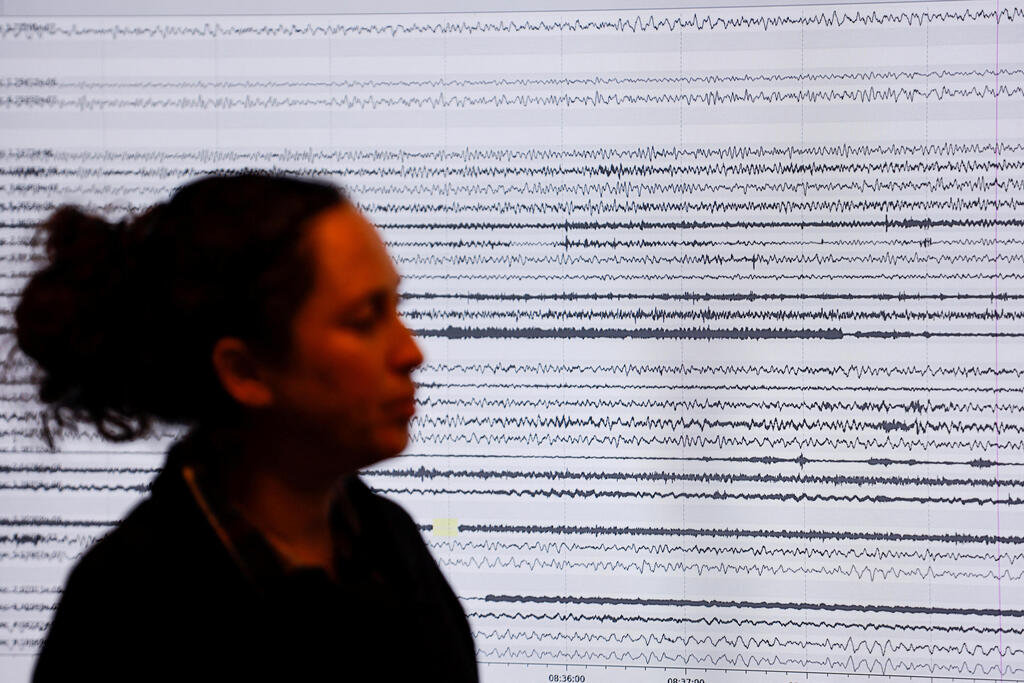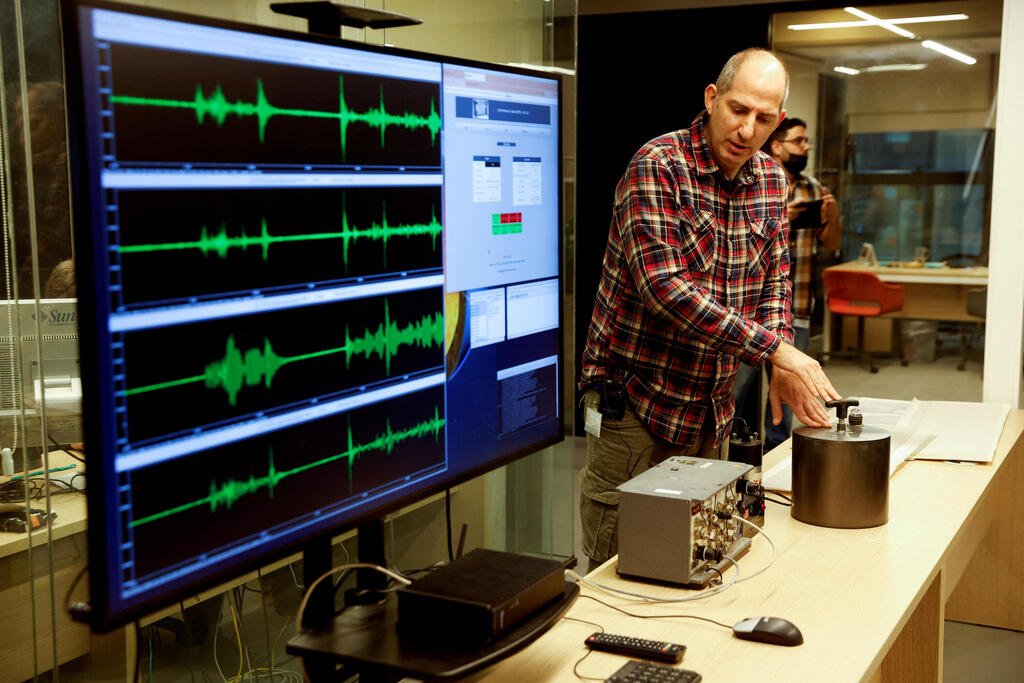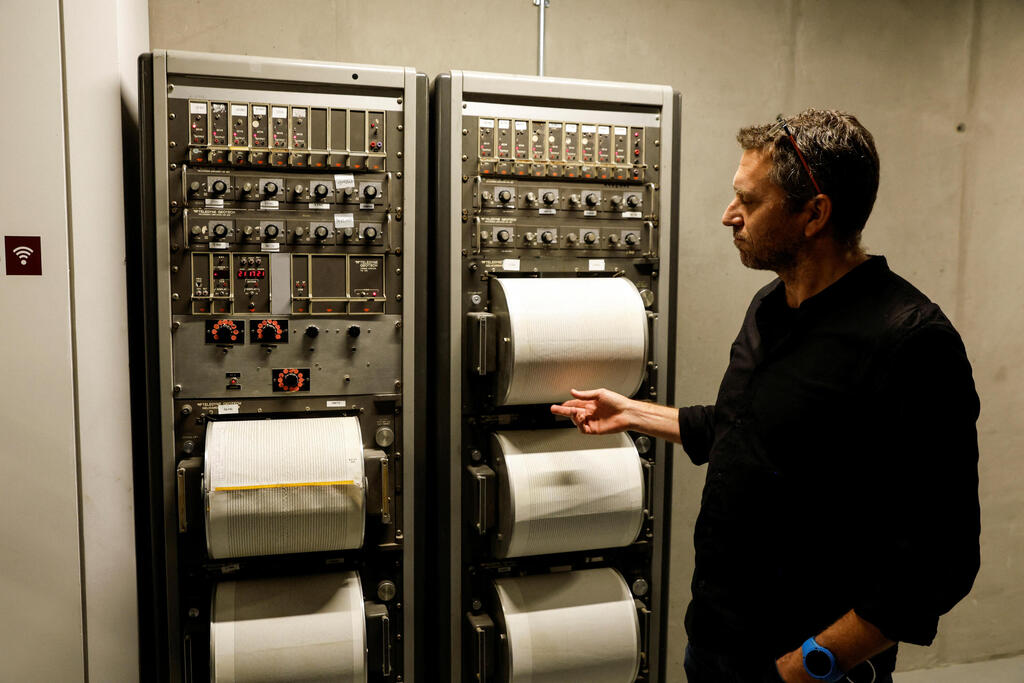Sirens sounded across several Israeli cities on Monday — but not to warn residents of incoming rocket fire as so often happens. This time it was a drill for alerting them to a possible earthquake.
Typically triggered by missile defenses, the sirens will now also sound if a nationwide network of 120 seismic monitoring stations detects a strong earthquake.
3 View gallery


Seismic waves are seen on a screen during a demonstration of a new earthquake early warning system which triggers sirens if a nationwide network of 120 seismic monitoring stations detects a strong earthquake, at the Geological Survey of Israel in Jerusalem, February 7, 2022
(Photo: Reuters)
It could take some getting used to. Rather than just a wailing siren that means "run to a bomb shelter" this time the siren was accompanied by the word "earthquake" repeated on loudspeakers. It signaled that open areas are safest.
Early warning systems can be found in a small number of countries, like in Japan or along the west coast of the United States. What stands out in Israel is the role of the military, whose homefront command is well-practiced in alerting the public to emergencies with the sirens and targeted text messages.
The warning could be a few seconds or half a minute, depending on the distance from the quake's epicenter, but even those moments could save lives, authorities say.
3 View gallery


A worker demonstrates a new earthquake early warning system which triggers sirens if a nationwide network of 120 seismic monitoring stations detects a strong earthquake at the Geological Survey of Israel in Jerusalem, February 7, 2022
(Photo: Reuters)
The Dead Sea Fault that runs between Israel and Jordan is known for seismic activity. Big earthquakes happen in the area about every hundred years, with the last one occurring in 1927, so timing is key, said Ittai Kurzon, a seismologist and the project manager at the Geological Survey of Israel.
The system was been operating offline for more than a year, but when two relatively small earthquakes hit northern Israel last month, things were expedited, he said.
The geological survey monitors seismic activity around the clock, and if a quake of at least 4.5 magnitude is detected, the military is instantaneously notified and warns the public.
3 View gallery


A worker stands by an antiquated seismograph during a demonstration of a new earthquake early warning system which triggers sirens if a nationwide network of 120 seismic monitoring stations detects a strong earthquake at the Geological Survey of Israel in Jerusalem, February 7, 2022
(Photo: Reuters)
It is simple but with limitations.
There is a "blind zone" in the area about 25 km (15 miles) from the point the earthquake began, Kurzon said.
Should a serious quake hit around the northern Dead Sea, for example, communities nearby will have no warning. In Jerusalem, which is just outside the blind zone, people will get an alert 4-5 seconds before the shockwave hits. Tel Aviv, about 60 km farther west, will have 21 seconds to prepare.

